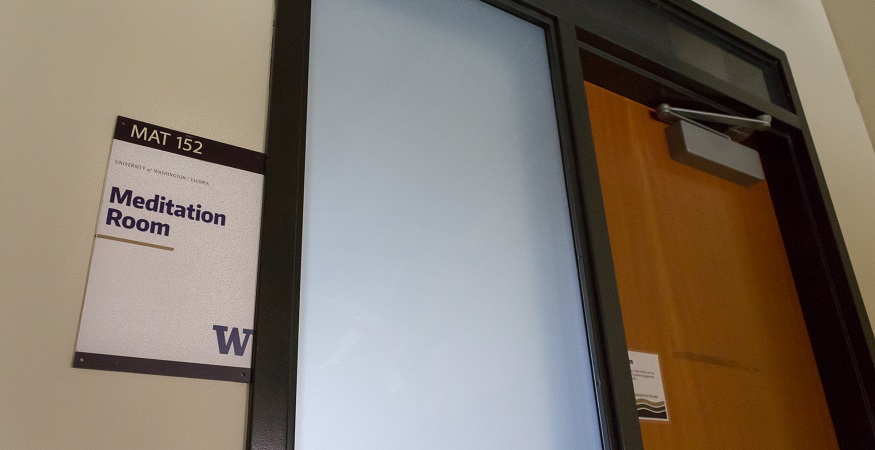Opinion: Being mindful can bring peace and happiness to your life
We live in a fast-paced world, constantly moving to and from spaces and destinations with things to do and people to see. Our busy schedules and limited leisure time cause us to seek out instant gratification — which our information-driven world delivers to us. While being busy and having a purpose is great for productivity, it may be harming our ability to be mindful — and truly happy.
Mindfulness, as a practice, is a state of being where a person is fully aware of the present moment. It also involves opening the mind in order to acknowledge and accept one’s physical sensations, thoughts and feelings.
While this seems pretty straightforward, achieving this state or incorporating mindfulness into one’s lifestyle can be harder than it seems. Have you ever gone on a vacation and noticed anyone who stops every 5 feet to take a picture? Or have you thought to yourself while engaging in an activity that you have to document it on social media so that others will see what you are doing? If so, it’s safe to say mindfulness is not being practiced as it should.
This is not to say that sharing photos or documenting memories is inadvertently wrong — in fact, we are lucky to live in a time where we can do so. The concern here is that this is becoming the standard way people experience life. It can be difficult to separate capturing life’s moments on a device and actively experiencing them.
Many people try so hard to be happy that they forget to experience all the little moments that make up our lives. By being fully present psychically, emotionally and mentally, you can have a greater sense of happiness and peace within one’s self.
Mindfulness has roots in many Eastern religions and ancient practices, one of which being Buddhism. Buddhism includes the art of meditation, with the Buddha himself saying, ”Living 24 hours with mindfulness is more worthwhile than living 100 years without it.”
In ancient times, the Buddha believed that the suffering and unhappiness of humans was rooted in an ignorance of the realities of the world. He thought that this could be addressed through fully experiencing life and embracing all human experiences — including pain and joy.
Through mindfulness, humans are able to relax and focus on the present moment, which reduces both pain from the past and stress about the future. For hundreds of years, many people have been preaching about the benefits of mindfulness for reducing symptoms of anxiety and depression.
Dr. Elizabeth Hoge, psychiatrist at the Center for Anxiety and Traumatic Stress Disorders at Massachusetts General Hospital and assistant professor of psychiatry at Harvard Medical School says,
“People with anxiety have a problem dealing with distracting thoughts that have too much power,” Dr. Hoge said.
Dr. Hoge and other researchers of mindfulness share the belief that by retraining your thoughts to focus on the present and experiencing a particular moment more positively, you can completely change your outlook and have a reduction of anxious thoughts.
“You might think ‘I’m late, I might lose my job if I don’t get there on time, and it will be a disaster!’” Dr. Hoge said. “Mindfulness teaches you to recognize, ‘Oh, there’s that thought again. I’ve been here before. But it’s just that — a thought, and not a part of my core self.”
By practicing this inner peace and striving to be present in all moments of our lives, even the unpleasant ones, we may enter a new realm of happiness and gratefulness for life. As the Buddha once said, “Living 24 hours with mindfulness is more worthwhile than living 100 years without it.”
Visit UW Tacoma’s meditation and mindfulness room in MAT 152.
Get the access code to the room by contacting the Department of Student Engagement in MAT 103
or by calling 253-692-4901






